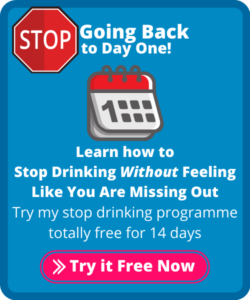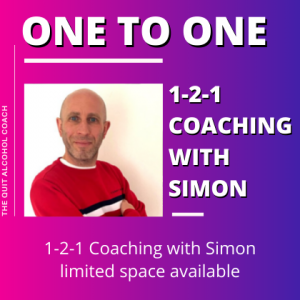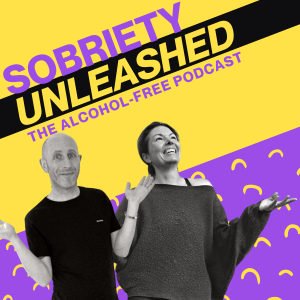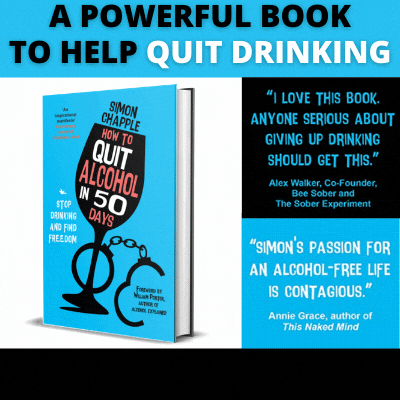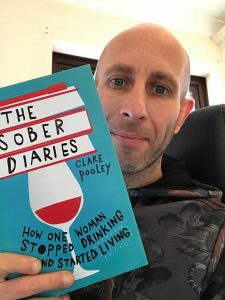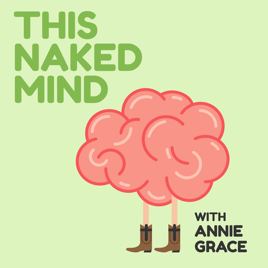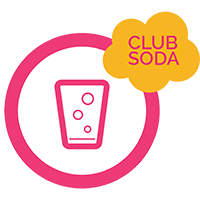Last woman drinking

Guest post by Lisa Edwards Author of Cheat Play Live
I knew that I’d hit rock bottom when the young designer next to me in my bed was on the phone to his very understanding girlfriend, reassuring her that he was ok, and that nothing had happened. “We have a very honest and open relationship,” he said, looking at me shyly.
I’d got him so drunk at some work drinks that he hadn’t been able to get home. We’d both slept next to each other, fully clothed, and now it was time to face the harsh light of day. And the fact that I was his boss…
As a senior manager in a publishing house a few years ago, I organised a weekly ‘Prosecco Hour’ every Friday at 4pm. I’d say it was ‘for the staff’, but now I realise it was also for something else: it was a way of enabling and validating my own drinking by having everyone around me join in.
The publishing world is made of prosecco hours; they’re everywhere, from book launches to book fairs. We’d whip out a bottle with the merest whiff of something to celebrate, even if it was just the end of a stressful day. But over time, I noticed that the numbers joining in had dwindled, and they were more likely to be peers my own age gathering around the fizz while other younger team members backed away politely, saying they needed to get to their yoga class. I couldn’t understand why they’d prefer that over booze and I scoffed at their lack of party spirit.
I’d got a name for myself. “Lisa likes a drink,” I’d hear people say. I’d laugh with them about my inability to ‘just have one’ – everyone knew I’d drink one bottle, not one glass. I didn’t know I had a problem. It was what everyone was doing, wasn’t it?
Writing my memoir, Cheat Play Live, made me examine where my drinking began. I knew it had started in the nineties with my entry into publishing and ladette culture. We all drank Stella with the boys and fancied ourselves as Bridget Jones, Ally McBeal or the girls in Sex and the City. I drank as a reward for triumphs at work and as a commiseration for the stress. But I was also using alcohol to numb the grief of losing my father as a child and to cope with my mother’s dementia.
As the decades passed, I started drinking on my own in bars. My feminist self justified it as a woman exercising her independence and freedom, but really it was further validating my habit. My drinking gathered pace over time, until it reshaped itself into something I could cope with: bingeing.
Before I stopped drinking almost three years ago, my life was largely constructed around alcohol. I was successfully managing my career, and my drinking. I was trapped in a binge-recovery cycle that I told myself was ‘cutting back’. I’d restrict my drinking to three nights per week and felt smug about my nights off. In reality, I needed those days in between to recover from the bottle of prosecco (or two) that I was consuming on the other nights.
Leading UK alcohol charity, Alcohol Change UK, states: “…a generation who drank heavily in the 1990s and 2000s is bringing those habits into middle age, with potentially serious consequences for their long-term health.”
I spoke to Lucy Holmes, the charity’s Director of Research and Policy who said, “Many women drink half a bottle of wine per night, not realising that it represents a third of their weekly recommended intake. They are unaware of the health risks and the links between alcohol consumption and cancer, stroke, cardiovascular disease and diabetes.”
I am proud of the fact that I’ve never smoked, having lost my dad to cancer (he was a heavy smoker). I was ten years old when he died and I swore I’d never touch a cigarette, even though everyone around me was doing it. As it was, I also managed to avoid alcohol until I was in my early twenties – and if I’d been told that drinking alcohol was equally harmful, I never would have started. But of course, we know that the alcohol industry is worth £10bn to the government – they’re never going to highlight its harms in any meaningful way, even if £3.5bn of that income has to be spent on managing alcohol’s damage to our health.
Being made aware of potential physical harm has a huge effect on our smoking and drinking habits. The increase in non-drinking among millennials and Generation Z is largely attributed to their awareness of alcohol’s harmful effects (as well as its cost). Similarly, many women my age are proud of giving up smoking because they see it as a greater harm, having swallowed health campaigns such as the British Lung Foundation’s Stoptober. Like me, they’ve also seen the effects of smoking on their ageing parents. A friend of mine, Cheryl, 51, a press officer living in Brighton, admits, “I don’t worry about my drinking,” she said, “it’s the late nights and the cigarettes I smoke when I am drunk that I worry about.”
Public Health England found that high-risk drinking increased from 16% in 2019 to 19% in 2020, most of which was driven by women during lockdown, specifically those between 35 and 54 years old. (High-risk drinking is anything above the recommended limit of 14 units, equating to one and a half bottles of wine, six pints of beer or seven double gin and tonics, or anything above 5 days per month of binge-drinking.) Women my age used alcohol as a way of coping with the increased stress around working and schooling from home during lockdown.
I relied on zero-alcohol prosecco to see me through, even though I did spend some time staring at the shelves of the real stuff. It’s the most I’ve been tempted since I gave up – I wanted to break up the day, numb the boredom and anxiety, and celebrate when it was all (apparently) over. On ‘Freedom Day’, I watched two women taking a bottle of prosecco and two glasses down to the beach and I so wanted to join them. But I didn’t.
The UCL report showed that while the numbers of women drinking during lockdown increased, the numbers of those trying to give up also showed an upward curve. I know that among my friends, their increased lockdown drinking scared them a little into cutting down. Candice, 42, single mother and a senior lecturer in sport and fitness in Hampshire, worked from home and homeschooled her 13-year-old daughter during the pandemic. She drank gin and tonic every night as her life became more stressful. “I use alcohol as a reward or something to help me unwind, and during lockdown,” she told me. “It was something I used to break the day into evening. That kind of habit forms very easily and after lockdown I decided to cut back for the sake of my health.”
Since the pandemic, Candice has reduced her drinking to two to three nights a week: “I now consciously have nights off alcohol, drinking a cup of tea or a hot chocolate instead. I try to only drink at weekends and I’m happy with that. All my friends have done a similar thing.”
A number of celebrities who were heavy drinkers in the 1990s and 2000s have recently embraced the sober life. Kate Moss, 47, has been alcohol-free since 2018 and Zoe Ball, icon of ladette culture, quit in 2016. More recently, Susannah Constantine, 59, spoke about her own alcohol dependency: “The truth was, not only was I dependent on alcohol, I enjoyed life better when I was drinking. Until I didn’t… Drinking had ceased to be fun. I had ceased to be fun. I was no longer in control of my drinking; it was controlling me.”
I had a very similar epiphany to Susannah. My own sober journey started nearly three years ago with therapy, yoga and reading ‘quit lit’ such as This Naked Mind by Annie Grace – the sober bible for so many people. Drinking alcohol had stopped making me feel good and I’d begun to question why I was ordering the first drink, never mind the second. The only part that was every truly good was the anticipation of it and that first sip. Drinking started to feel increasingly disappointing after that point and I did and said a lot of things I now regret while under its influence.
Reading This Naked Mind and William Porter’s Alcohol Explained revealed that what I was drinking was literally a poison – a toxic depressant – and it made me give up for good. But this was a message I was opening to hearing at a particular time of my life. When I’ve told friends who are still drinking that they are putting flavoured ethanol into their bodies they just look at me blankly. But is the message slowly seeping in?
Some of my friends gave up drinking at the same time as me (literally the same day I told them), seemingly relieved to being given social permission to do so. Others have read my blog and my book and felt they could give it a try too. My friend, Cheryl, who recently fell down some steps on her way home at 3am and knocked herself out, said, “It made me question why I can’t just have the one and head home. When I’m dancing away in a club I feel great, but the next day, I feel dreadful and a bit of an idiot. If my friends all slowed down then I probably would too – I don’t want to be the last woman drinking.”
Since becoming sober, my life has completely changed. I’m more likely to stay in, because I’ve realised how much of my going out was tied to drinking. I’ve reclaimed mornings and now use them as my ‘evenings’, where I walk, meet friends for coffee and muse on the day ahead before I start work. At 54, I look younger, have a clear, (mostly) anxiety-free head, and I’m more able to cope with menopause symptoms which are known to be worsened by drinking.
But that, my friends, is a subject for another book…
Cheat Play Live by Lisa Edwards is out now (Redwood Tree Publishing, £4.99 (ebook), £6.99 (paperback)
Available to buy here: https://linktr.ee/redwoods1
About the author:
Lisa Edwards is a former publisher who is now a freelance writer, editor, agent, and yoga teacher. She grew up in North Wales but has lived mostly in southeast England. She lives in Worthing, West Sussex, where she lives alone and walks by the sea every day. She splits her time between the UK and India.

